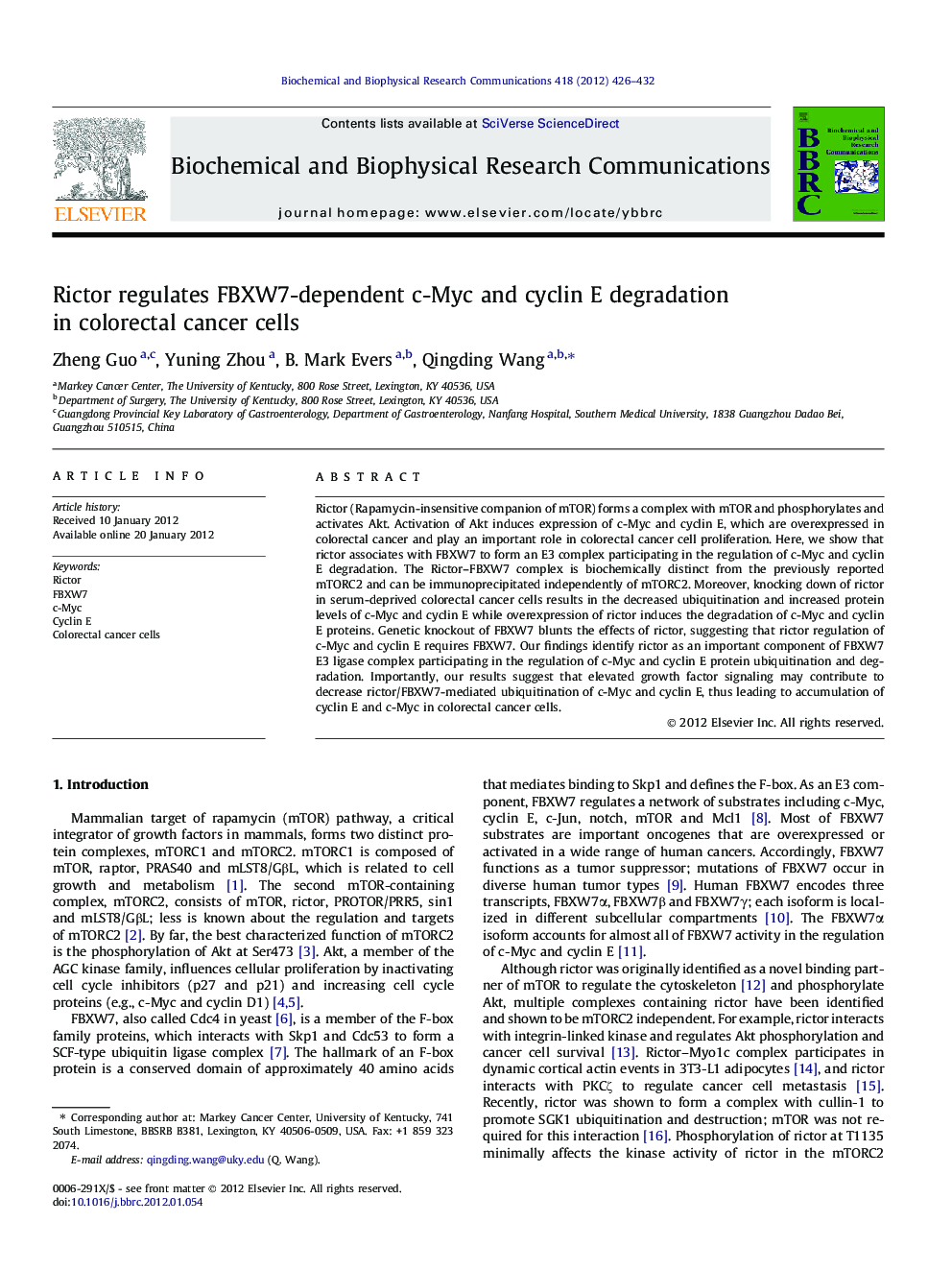| Article ID | Journal | Published Year | Pages | File Type |
|---|---|---|---|---|
| 1930061 | Biochemical and Biophysical Research Communications | 2012 | 7 Pages |
Rictor (Rapamycin-insensitive companion of mTOR) forms a complex with mTOR and phosphorylates and activates Akt. Activation of Akt induces expression of c-Myc and cyclin E, which are overexpressed in colorectal cancer and play an important role in colorectal cancer cell proliferation. Here, we show that rictor associates with FBXW7 to form an E3 complex participating in the regulation of c-Myc and cyclin E degradation. The Rictor–FBXW7 complex is biochemically distinct from the previously reported mTORC2 and can be immunoprecipitated independently of mTORC2. Moreover, knocking down of rictor in serum-deprived colorectal cancer cells results in the decreased ubiquitination and increased protein levels of c-Myc and cyclin E while overexpression of rictor induces the degradation of c-Myc and cyclin E proteins. Genetic knockout of FBXW7 blunts the effects of rictor, suggesting that rictor regulation of c-Myc and cyclin E requires FBXW7. Our findings identify rictor as an important component of FBXW7 E3 ligase complex participating in the regulation of c-Myc and cyclin E protein ubiquitination and degradation. Importantly, our results suggest that elevated growth factor signaling may contribute to decrease rictor/FBXW7-mediated ubiquitination of c-Myc and cyclin E, thus leading to accumulation of cyclin E and c-Myc in colorectal cancer cells.
► Rictor associates with FBXW7 to form an E3 complex. ► Knockdown of rictor decreases ubiquitination of c-Myc and cylin E. ► Knockdown of rictor increases protein levels of c-Myc and cylin E. ► Overexpression of rictor induces the degradation of c-Myc and cyclin E proteins. ► Rictor regulation of c-Myc and cyclin E requires FBXW7.
